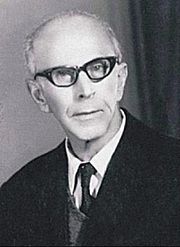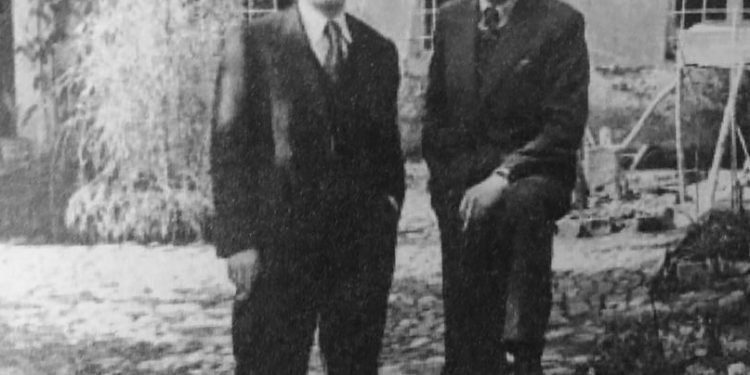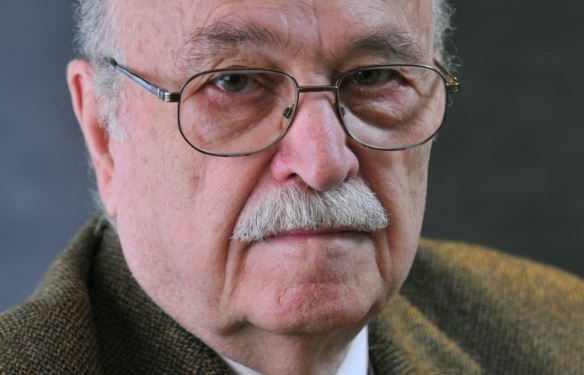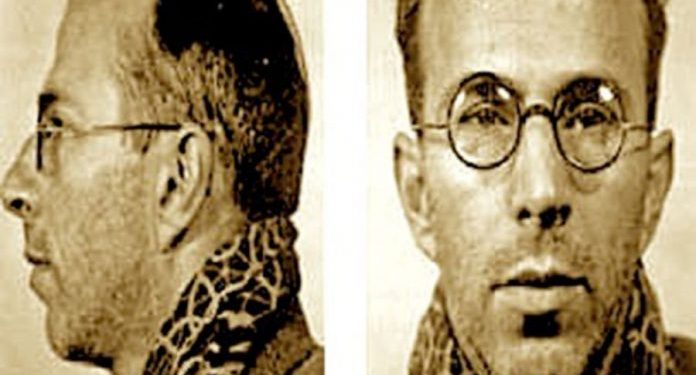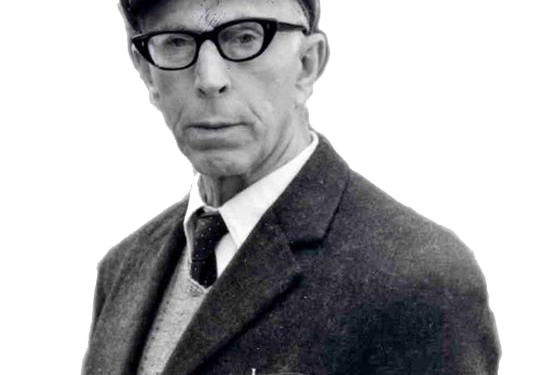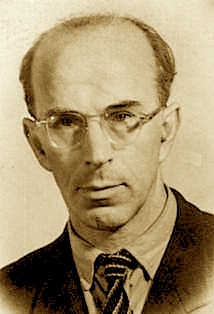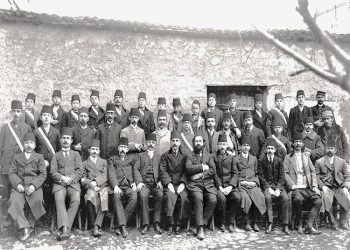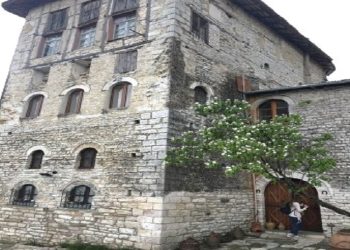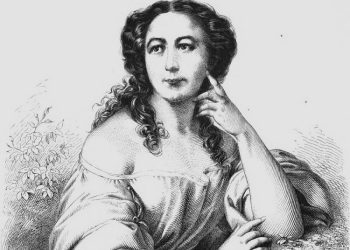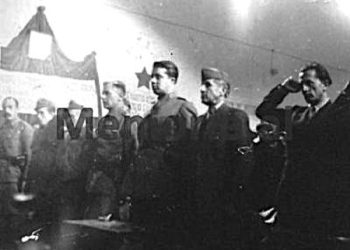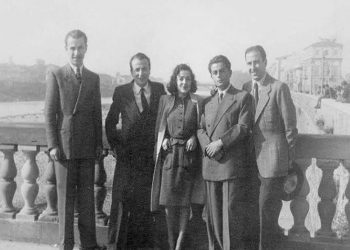By Prof. Dr. Alexander Meksi
Memorie.al/In the history of contemporary albanology, a group of Albanian scholars, among whom stand out: Eqerem Çabej, Selman Riza, Kostaq Cipo, Mahir Domi, Shaban Demiraj, Rexhep Ismajli, not only made it a deeply Albanian science but also oriented for further research all foreign albanologists. Among them a special place is occupied by Selman Riza, who is joined by a prominent scientist and great patriot, a man with a strong character and unyielding to dictatorships, who with iron will reached the peaks of science to which he devoted himself. Such people are rare in the history of any nation and should remain inspiring for generations. For this and should be known; Their Life and Work. The monograph of the Angel Angonius dedicated to this figure, deliberately left in oblivion, which is a significant contribution, but only the first step, serves this purpose. His work and life, of the great patriot, must be published in full, must be well known, especially in times of great turmoil and confusion like ours. “The homeland begins with the word,” said a poet, and Selman Riza, like few others, went to the roots of the words.
Life
To evaluate the work of a writer or scientist, to analyze it objectively you must start from life. The work does not arise from nothing. It is life, its arduous path, work and sacrifices, the great goals that lead a person to success. In addition to these necessary qualities, which Selman Riza never lacked, life reserved many vicissitudes and hardships that only a strong character like him could face with dignity and stoicism. They hindered him but did not subdue him. He was a worthy son of a martyred Kosovo. He has two places in the pantheon of the nation, as a scientist and as a patriot, places that no one can occupy. Selman Riza was born in Gjakova on 21. XII. 1909. He was born in a period of wars where Albanians, especially those from the northern regions, fought with weapons in hand to defend and not to divide the homeland. In such a bloody time and in a patriotic environment, the future scientist was born and spent his childhood. Engjëll Angoni describes them with enviable correctness and logic, describing the little boy from Gjakova since his escape to the “motherland”, in Albania, in 1922, together with other young Kosovars. And they came on foot, to Tirana, where the Plotore School “Naim Frashëri” was waiting for them, with 130 students, of whom 110 were Kosovars, with teachers from both sides of the border, who were also real parents for these children who had abandoned birthplaces with a high patriotic consciousness. Selman Riza in 1925 was declared the best student of the school with absolute appreciation. He completed all six years of full school in three years and with excellent results. As such he was born eligible for a state scholarship. In 1925, Selman Riza started his studies at the National Lyceum of Korça, the most famous school for the time in Albania.
Education and graduation
There, too, he was a smart, tireless, systematic and persistent student, with extraordinary will, and in 1931, he finished with excellent results, in six years of the ninth grade of Lyceum. His pedagogues, French and Albanian, classmates and acquaintances, would speak superlatively about Selman Riza. Leon Perre, technical director of the Lyceum of Korça, would write to the Minister of Education: “Selman Riza is a very talented, very serious young man, who will be able to complete any branch of university studies with the same ease”and I have no doubt that he will not later honor the homeland with his name.” His prediction was correct. The Ministry of Education provided him with a scholarship to study at the University of Toulouse in France. Here too Selman Riza repeated the success of the lower cycle schools; not only did he burn the stages but in three years (1932-1935), he graduated from the Faculty of French Language and Literature, the Faculty of Law and specialized in the German language in Heidelberg, Germany. In France he received not only a complete scientific formation but also a comprehensive culture, the great principles of freedom, equality first proclaimed in this country which for constant had constant democratic changes.
Immediately after returning to his homeland, he was appointed a lecturer at the Lyceum of Korça, in that school that a few years ago had been a student. The students’ memories of their teacher are extraordinary and rightly so the author of the monograph Angel Angoni has quoted many of them that years later they too became well-known intellectuals. In his scientific-pedagogical activity, among others, the contribution of Selman Riza in the publication of the school magazine “Lyceum” in 1936, which became an important event in the life of the school, is emphasized. The aim of the magazine was “to make this place forgotten by foreigners for a long time… to give Albanian youth an understanding of the true meaning of western civilization”. We had the opportunity years ago to browse the collection of this magazine, which like its author has been left in oblivion as a deeply patriotic and progressive press organ of the ’30s. We were impressed by its cultured and cultured content, composition modern and progressive ideas that today all day deserve attention and consideration. This is why the author says of the polyhedral figure of the great scientist: and arrogance. sincere, realist, reformer and genuine democrat”. And the French Director of the Lyceum said about him in 1937: “With his knowledge and dedicated explanation, Professor Selman Riza was jealous not only of the Albanian professors, but also of the French ones because of the indelible impressions he left as an Enlightenment professor with depth and encyclopedism. his.”
Years of War
It seems that this subtitle is out of nature and the formation of Selman Riza. But what a great scholar and scientist who was just as patriotic and a great democrat was Selman Riza. The fascist occupation naturally put him at the forefront of the anti-fascist resistance. In the big demonstration of November 28, 1939 in Korça, Selman Riza would be arrested and imprisoned. From here begins his ordeal of persecution that would accompany him in all regimes and in all dictatorships. According to a document drafted by the fascist militia bodies preserved in the Central State Archive, we learn that: “Selman Riza is a determined opponent against Italian politics. Neat propagandist among the student element. Dangerous”
In February 1940, Selman Riza together with other patriotic professors, such as: Abaz Ermenji, Masar Shehu, Stavri Skendi, etc., were interned for a period of three years in Ventotone, Italy. Even in the difficult circumstances of internment, Selman Riza did not stop studying. In exile he is distinguished for a dignified attitude. Exile made him more relentless, more determined to never reconcile with dictators and dictatorships. In October 1941, he was released from exile and returned to his homeland. Of course, he could not resume his profession, but he worked in a private firm in Durrës enough to survive. In these circumstances he moved to Kosovo (July 1942), where he worked as a representative in court, but at the same time he was engaged in studies and, in the first place, in intensive political activities. In his scientific studies he aimed, among other things, to scientifically prove the Albanian thesis of the uninterrupted autochthony of Kosovars in their lands. Precisely for this purpose, together with other Kosovar patriots, he created a small center of Albanian studies in Prizren. Its purpose was: “To create opportunities for intellectuals in general and teachers in particular to not only study the history, geography and dialect of Kosovo, but also to publish their works.” At the same time, Selman Riza stood out as a great political activist, as one of the main leaders of the patriotic, anti-fascist and anti-chauvinist movement in Kosovo. This movement refused to cooperate with either the communists or the Italian occupiers, but aimed at the liberation of the country and national unification. One of the main representatives of the British missions in Albania during the war, Major Peter Kemp, would report for Selman Riza, that: “He was the real brain of the Irredentist Party, whose greatest force were the clerks and small traders, who excelled in traditions”. “But this party failed to win the support of the allies who supported Tito’s communists in Yugoslavia and Albania.”
The aims of the Anti-Fascist Irredentist Movement are argued and propagated in the program treatise “Manifesto of Anti-Fascist Irredentism” which Selman Riza published in Tirana, in December 1943. And in 1944, he prepared to publish in Tirana a work of 200 p. entitled “On the documentary of the Albanian opposition” (on the national issue of Kosovo) in which, with convincing arguments, the claims of Serbian chauvinists about Kosovo’s affiliation are rejected. This important document of course disappeared and is still not found today. We learn its content to some extent in the “Autobiographical Notes” that the author pays due attention to in the monograph, as an authentic source of information. Important are the facts that the great albanologist and patriot did not become: “Neither the tail of the Ball, nor the appendix of the Front”. But, on the other hand, Selman Riza has welcomed any platform that supported national liberation on ethnic and democratic grounds, without ideological conditions.
Imprisonment by the Communists in 1945
For his deeply patriotic political activity, Selman Riza was imprisoned in 1945 in Tirana, just a few days after returning to Albania, where he had come to escape the Serbian genocide. After imprisonment and exile by the Italian fascists He was already trying another prison, by his compatriots. Selman Riza spent only three months in Tirana prison because, at the request of the Yugoslavs, he was transferred to Tito prisons in Pristina “as an anti-Yugoslav Kosovar” to stand trial. His classmate and classmate without a degree, Enver Hoxha, arrested him for handing over the great patriot to the Serbian executioners. After escaping deportation to Yugoslavia in 1945, thanks to the intervention of Manol Konomi, then Minister of Justice, this was not avoided in 1948. Selman Riza remained in Yugoslav prisons for three and a half years. He was released in August 1951 because he was seriously ill with scurvy and “risked falling into the hands of Yugoslav executioners”. Although interned and surveyed in Sarajevo, Selman Riza devoted himself entirely to scientific work, and in the years 1951 -1955, he wrote some of his works that later became the main corpus of scientific creativity.
Despite promises and threats, blackmail and intrigue to obtain Yugoslav citizenship, Selman Riza, in December 1955, returned to Albania and reunited with his family in Tirana. He started working immediately at the Institute of History and Linguistics, as a researcher and at the Faculty of Philology, where, as an external lecturer, he taught the course “History of the Albanian written language”.
Acts
The years 1956 – 1967 were the most fruitful period in the scientific activity of Selman Riza. These are some of the best albanological works that bear his name and raised to a new qualitative level the Albanian linguistics and scientific thought. He always fought for science and culture independent of politics. And he succeeded: because he always did what he had to do, what suited his scientific and political convictions. The scientific work of Selman Riza, as it is emphasized in the monograph, in its entirety, although in a short period, stands out not only the persistent work and the broad culture, the extraordinary scientific dedication and the logic of the argument, the creative force and the originality of prominent, critical and principled attitude … the extension of interests in many fields such as grammar, language history, general linguistics, textology, language criticism, terminology, literary language, etc. ” We do not intend to dwell on these because they are accurately summarized in monographs by the Angel Angoni, and on the other hand, it is not our “specialty” to appreciate them, but it seems appropriate to repeat the words of the great scientist, when modestly says to himself, “I am not a talent, but a job.” He clearly states his credentials of the scientific method: “I am, first and foremost, a critical linguist. “They are removing my scientific criticism. I am no longer Selman Riza.” And, as Kosovar scholars say: Hilmi Agani, Besim Bokshi and Rexhep Smajli, in the preface to the publication of Selman Riza’s work in Prishtina; “With it, scientific criticism reaches the level of objective scientific opinion of the desired level and as such fulfills an important social function.” Selman Riza, harshly criticized in our culture dilettantism, mediocrity, conformism, etc. Certainly criticism, though objective and constructive, was not always appreciated. And as he himself said, he often encountered “Violence with critical attire up to disqualification”. And the inquisition of time was not lacking. Albania was going through the Chinese period, with the cultural and ideological revolution that overthrew even those few successes of albanology, achieved with great effort, under a dictatorship that was hostile to truth, progress and freedom. Plans and projects were overturned, masterpieces of world and Albanian art were produced as reactionaries. It was at this time that Selman Riza suffered a severe blow. As a man of character, he could not reconcile himself to the mediocrity, complacency, and servility that characterized the Institute of Linguistics, where capable scientific forces were fought and thwarted by party leaders. His bold and objective criticism was considered hostile activity. He said that the heads of scientific institutions should not have certain functions and that Marxist philosophy could not be applied to linguistics. For these thoughts in April 1967, the honored professor, after numerous lightning strikes and collective trials in the context of the fight against “bourgeois waste”, was expelled from the Institute of Linguistics and taken to Berat, as a guide in the city museum and later in the City Library. He did not ask for help or protection from anyone above. In 1970, Selman Riza retires early and returns to his family in Tirana, monitored and followed at every step by the State Security. Although a great scientist, well known in international scientific circles, with works and titles, Selman Riza was denied the right to return to work at the Institute and in fact closed all avenues for scientific activities so much that he was not allowed to take books in the library! The fellow student gave the co-teacher, who failed to take any exam at the French university, the paranoid dictator, removed his name from his works. This was probably the only honor he did to Selman Riza, because in such cases, praise is worse than swearing.
The author Engjëll Angoni, in his research on Professor Riza, publishes another fact. “As long as he was alive, neither an appreciative writing about Selman Riza, nor as a linguist, let alone as a patriot.” In the last years of his life he was ill and had no opportunity to go abroad for treatment, to ease the prolonged pain of life and studies. Even the request for a speech by his colleagues at the funeral ceremony (16.2. 1988) was not approved by the higher instances of the state party! They did not forgive Selman Riza, the eternal challenge. The ghastly official silence was broken at the last moment by Professor Alex Buda, the President of the Academy. With an impromptu short word, he said goodbye to his colleague, close friend. After him, dr. Bexhet Reso, who, revolted by the official silence, exploded:
“What is happening like this?! Who are we burying?! We cannot be separated like this from Selman Riza. He is not only a linguist by voice, but, in the first place, a prominent patriot, whose ideals are still today the flag of Albanianism in Kosovo “.
I knew Professor Selman Riza early, because after returning from Yugoslavia he lived for some time with his brother on the same street with us, “Rruga Siri Kodra”, and not far from us. I knew who he was because he was a friend of my father and that with his son, Emin, we were in the same school, both in high school and high school, with changes in years but we were also friends. The case brought us to be since 1962 and colleagues in the study and restoration of monuments at the Institute of Cultural Monuments.
I wrote elsewhere on the macabre lightning bolt they put on him and he did not bow down and for many of us he was an example of wisdom and manhood. After returning from Berat he often worked at the National Library and I had noticed that he was no longer engaged in language studies, because indirectly, treating him as an enemy, they had deprived him of this opportunity (contacts in the institute and publications). He worked in the field of philosophy, an old passion for him, but also at the foundation of his linguistic research. He did not associate with anyone because they avoided him, he worked long hours without playing the country. I met him there but also at his house. In conversations he was strict but always polite and extremely correct; critical but also cordial; he felt violence but stoic, out of conviction and not out of stubbornness. He tried, however, to feel equal to her. He lived under violence but disobedient and upside down, honest in all anti-Albanian regimes.
Some time ago, I asked Emin if it was true that the professor had left manuscripts from the field of philosophy in terms of linguistic connections and he told me that there are some notebooks that he and his wife are throwing in the computer to send to Kosovo, where they will be included in the fourth volume of the full publication of the works, which is being carried out by the Academy of Sciences and Arts there. I rejoiced because it is an obligation to be fulfilled.
Selman Riza with his life and work remains an unwavering fighter for the liberation of Kosovo and the Albanian cause, an unwavering and systematic follower of the principle of uncompromising incompatibility with everything anti-national and regressive, for Albania and Albanians and for that he was persecuted and raped all his life, but did not submit. He remains equally one of the most prominent linguists in the field of albanology. Albanian science and not only it owes a lot to him and this state of silence and disrespect must change as soon as possible.
Evaluations by Albanian and foreign scholars for Professor Selman Riza
“In the new Albanian linguistics, prof. Selman Riza occupies a prominent place. He belongs to that prominent generation of prominent Albanian linguists who approach the work with dedication and courage for a more in-depth study of the Albanian language system, both in its current state and in its historical evolution.”
Prof. Mahir Domi, Prof. Shaban Demiraj (1988)
“Selman Riza, a man without zigzag character, original in ideas and formulation of thought, had an extremely rich culture; I’m sure that in other academic conditions (the loss of ten years in prison is not even taken by word of mouth would have given greater and more lasting works of the time… who knew him well and collaborated is not erased from the mind of heart.”
Prof. Dr. Martin Camaj (1989)
“In the history of albanology, the work of Selman Riza occupies a very important place. This important place is justified many times: With the high scientific and methodological level (from the Albanian point of view and innovations in this direction) of his studies. By disagreeing with a tradition of concepts and views, moreover by a path, already stabilized and by sowing the seeds of albanology in Kosovo and by sowing this seed with an activity that does not lag behind the level of albanology, but rather becomes a target object and with etalon level for any movement that wants to move forward in this direction ”
Prof. Dr.Hilmi Agani, Prof. Dr. Besim Bokshi, Prof. Dr., Rexhep Ismajli
(From the preface of the book “Selman Riza” “Albanian Studies 1979”)
Riza’s works are surprising for the modern way of thinking (especially against the background of the achievements of the Albanian language so far.) And in large proportions provide theoretical solutions suitable for the linguistics of the time. The works of this author are characterized by logic, accuracy and clarity of interpretation. The value of Riza’s works is especially great in the field of historical grammar and the development of theoretical thought.
Prof. Dr. Irena Sawicka- “Studia albanistika” VIII Wraclaw – 1983




